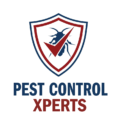Tips from Pest Control Xperts
Lakeland is admired for its picturesque Lake Mirror, the tranquil paths of Hollis Garden, and the notable architectural gems around Florida Southern College. Yet, the subtropical climate that enhances Polk County’s charm also invites rats and mice to settle where conditions are favorable. Below, we explore how rodents gain access to homes, practical methods to seal those entry points, and why even a minor rodent problem can spiral into a substantial infestation. Neighborhoods in nearby Plant City, Lithia, Mulberry, Bartow, and Auburndale face similar challenges, making proactive rodent control essential in Lakeland Florida and throughout the region.
1. Why Rodents Thrive in Lakeland and Surrounding Areas
- Year-Round Mild Weather
- Florida’s consistently warm temperatures allow rodents to stay active all year.
- Extended breeding seasons lead to faster population growth than in colder climates.
- Growing Residential and Commercial Sites
- Expanding developments in Plant City or Mulberry may unintentionally offer sheltered spots for rats and mice.
- Overgrown vegetation or improperly sealed trash bins provide rodents with abundant nesting and food opportunities.
- Proximity to Lakes and Green Spaces
- Lakes around Lakeland—such as Lake Hollingsworth—draw in wildlife, including rodents seeking water sources.
- Rural parts of Bartow and Auburndale also offer a mix of farmland and residential areas, creating more pathways for pests to thrive.
2. Entry-Point Checks: Where Rats and Mice Sneak Inside
Regularly inspecting your property can prevent minor rodent activity from becoming a major problem. Focus on identifying gaps or vulnerabilities around the exterior.
- Foundations and Walls
- Examine the base of your home for cracks or holes near ground level.
- Gaps around pipes or utility lines can act as hidden doorways.
- Doors and Windows
- Worn weather stripping or door sweeps often leave small but significant openings.
- Repair or replace torn screens on windows or patio doors.
- Rooflines, Soffits, and Attics
- Missing shingles or warped vent covers may provide easy access to upper floors.
- Watch for gnaw marks or droppings in attic corners—key signs of hidden nests.
- Garages and Storage Areas
- Even a small gap under a garage door can allow mice to slip inside.
- Cluttered sheds or basements can offer prime nesting spots if not well-maintained.
3. Sealing Tips to Keep Rodents at Bay
Once you identify potential weaknesses, addressing them promptly helps keep infestations from taking hold.
- Use Durable Materials
- Fill small holes with steel wool or wire mesh, then apply sealant for added strength.
- Cover larger openings with hardware cloth or metal flashing to deter chewing.
- Upgrade Door Sweeps
- Fit new sweeps on exterior doors to eliminate gaps at the threshold.
- Ensure garage door edges also seal tightly against the ground.
- Trim Vegetation
- Keep shrubs, vines, and tree limbs trimmed so they don’t touch your home’s exterior.
- Remove leaf piles or yard debris that might encourage rodents to nest nearby.
- Proper Trash and Food Storage
- Use trash cans with snug lids, and avoid leaving them right beside external doors.
- Store pet food indoors overnight to reduce nocturnal scavengers.
4. Why Rodent Infestations Can Quickly Spiral
- Fast Breeding
- Rats and mice can produce several litters each year, multiplying small issues rapidly.
- A minor sighting can balloon into a colony in a matter of weeks if not managed.
- Constant Gnawing
- Rodents chew on wood, insulation, and wiring, risking structural damage or electrical hazards.
- Newly created holes encourage additional pests to move in.
- Health Concerns
- Droppings and nesting materials can contaminate surfaces, impacting indoor air quality.
- Fleas or mites carried by rodents may spread to pets or other areas of the home.
- Hidden Nesting
- Rodents often remain undetected in attics, walls, or basements until populations grow large.
- Prompt detection and action are crucial for containing outbreaks.
5. Pest Control Xperts: Serving Lakeland, Plant City, Lithia, Mulberry, Bartow, and Auburndale
Pest Control Xperts emphasizes comprehensive strategies to prevent rodent infestations in Lakeland and the surrounding communities. By combining thorough inspections, targeted sealing methods, and practical advice on routine maintenance, residents can keep rodents from undermining their homes’ comfort and safety.
Ongoing Prevention Measures
- Frequent Exterior Checks: Survey walls, foundations, and doors monthly for gaps or damage, especially after heavy rains.
- Clutter Control: Store items in sealed plastic bins to reduce nesting material.
- Immediate Repairs: Fix worn screens, leaky pipes, or damaged roof edges as soon as they’re discovered.
Final Thoughts
Lakeland’s charming lakes, bustling neighborhoods, and easy access to nearby areas like Plant City, Lithia, Mulberry, Bartow, and Auburndale create a flourishing environment—but they also make it appealing for rats and mice. By focusing on careful entry-point checks, using robust sealing techniques, and reacting swiftly at the first sign of rodent activity, homeowners can maintain a comfortable living space. Pest Control Xperts is here to help residents across Polk County deter rodents, ensuring that each neighborhood remains a secure and welcoming place to call home.
